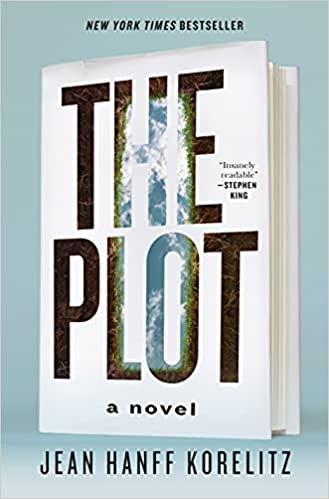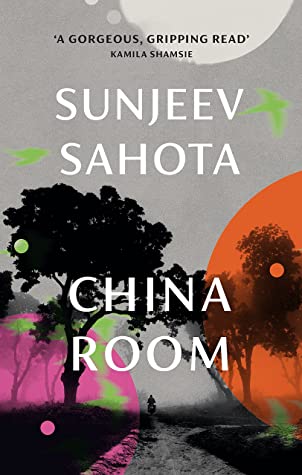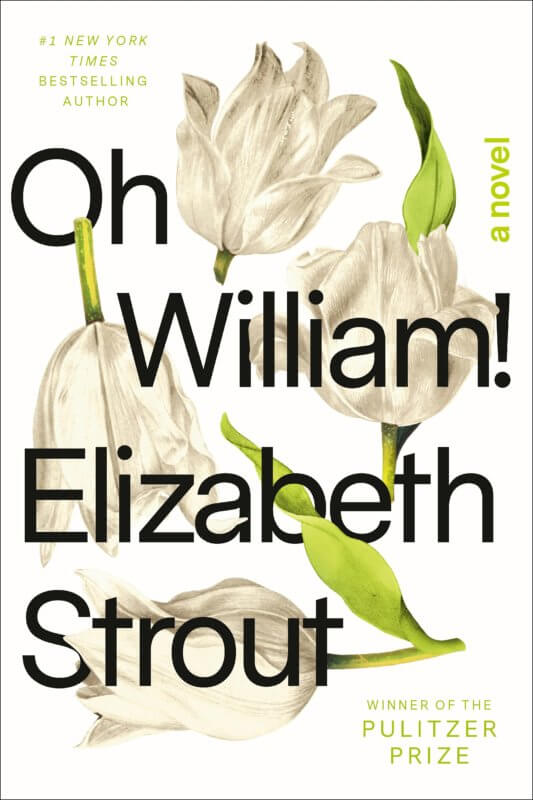A motley bouquet
It’s a new year. 2022. Wow. The old year is behind us, never to be repeated. And many I have heard saying, good riddance. Yes, 2021 was a tough one for many, that’s for sure, but as someone who had just penned a gratitude list for the outgoing year told me recently, she was surprised to remember that good things happened too. I admit I paused upon hearing this, but decided that, yes, I had to agree, good things happened too. I hope this has been your experience, I do.
At the very least, I can absolutely say that I read some very good books. And, for me, the act of reading itself has been a grounding, comforting constant through all the old year’s ups and downs, goods and bads, lockdowns, respites, adventures, recurrences, etc. Reading has allowed respite, escape into another world, the ability to share in the thoughts, ideas and visions of other minds in a quiet, alone/not alone way…and more. Yes, reading is near the top of my list of things for which I am grateful as I look back, and, also, ponder the year that stretches out ahead like a field of fresh, untrodden snow.
 Happily, I have recently read a motley bouquet of books that I feel are worthy of mention, the most recent of which is The Plot by Jean Hanff Korelitz. Stephen King called this book “insanely readable” with a suspense quotient that is “through the roof.” And yes, it is indeed a suspenseful read, with a compelling and satisfyingly twisted and twisting plot, but unlike many of its genre, this novel doesn’t rush into things. Much of its beginning has to do with acquainting the reader with narrator/anti-hero Jacob Finch Bonner, creative writing teacher and once-promising author of a “New and Noteworthy” (New York Times) bestselling novel. Bonner’s ego (we learn early on) is bruised and unsteady, his confidence shaken, his hopes dimming with each passing month…as each passing month brings zero forward movement in his writing career—which is particularly sad because being a writer is all Jacob Finch Bonner has ever wanted:
Happily, I have recently read a motley bouquet of books that I feel are worthy of mention, the most recent of which is The Plot by Jean Hanff Korelitz. Stephen King called this book “insanely readable” with a suspense quotient that is “through the roof.” And yes, it is indeed a suspenseful read, with a compelling and satisfyingly twisted and twisting plot, but unlike many of its genre, this novel doesn’t rush into things. Much of its beginning has to do with acquainting the reader with narrator/anti-hero Jacob Finch Bonner, creative writing teacher and once-promising author of a “New and Noteworthy” (New York Times) bestselling novel. Bonner’s ego (we learn early on) is bruised and unsteady, his confidence shaken, his hopes dimming with each passing month…as each passing month brings zero forward movement in his writing career—which is particularly sad because being a writer is all Jacob Finch Bonner has ever wanted:
“Ever, ever, ever, all the way back to suburban Long Island, which was the last place on earth a serious writer of any kind ought to come from but where he, nonetheless, had been cursed to grow up, the only child of a tax attorney and a high school guidance counselor” (who were less than encouraging). “He knew that he had chosen his lane and begun swimming, and he would not stop swimming until he held his own book in his own hands, at which point the world would surely have learned the thing he himself had known for so many years: He was a writer. A great writer. That had been the intention, anyway.”
As you can see, the writing here is unusually good for the suspense genre. Clever, all the way around, including the title. Plot (noun) means: 1. a sequence of events in a narrative, as in a novel, for example; 2. an immoral or illegal plan; 3. a designated section of land for a gravesite. I don’t want to say much more for fear of ruining the fun, the surprise of reading this book. It is a real treat—a page-turner with a literary bent—a novel within a novel—well-written, rich, textured, and surprising. Treat yourself.
 Another very good book is China Room by Sunjeev Sahota—very different from the forementioned novel in almost every respect except that it too involves a twist, a mystery, a slow-to-unravel truth. Mehar, a young bride in rural Punjab (1929) is married off, but get this: not to one man, but to three brothers, in a single ceremony. She goes to live in a new home where she shares quarters with her new “sisters,” both of whom are also married to a brother, but, like Mehar, know not which. The three young women work in the family’s “china room,” seldom interacting with their husbands (except at night) or their bossy, domineering mother-in-law, who put the marriages into motion in the first place and seems to be pulling everyone’s strings. The prevailing question for Mehar becomes: which one of the brothers is her husband? She thinks she knows; there are a few clues—but-….
Another very good book is China Room by Sunjeev Sahota—very different from the forementioned novel in almost every respect except that it too involves a twist, a mystery, a slow-to-unravel truth. Mehar, a young bride in rural Punjab (1929) is married off, but get this: not to one man, but to three brothers, in a single ceremony. She goes to live in a new home where she shares quarters with her new “sisters,” both of whom are also married to a brother, but, like Mehar, know not which. The three young women work in the family’s “china room,” seldom interacting with their husbands (except at night) or their bossy, domineering mother-in-law, who put the marriages into motion in the first place and seems to be pulling everyone’s strings. The prevailing question for Mehar becomes: which one of the brothers is her husband? She thinks she knows; there are a few clues—but-….
Again, I don’t want to tell too much. But I will say that interwoven into this novel is another story, which takes place 70 years later, about a young Englishman battling addiction and undergoing bone-quaking withdrawal far from his home. He ends up holing up at an abandoned farm, where he discovers an old china room, barred from public view and entry. And lo, another mystery begins to unfurl. Beautifully written, compelling, evocative, moving. You will love it.
 One more: Oh William! by Elizabeth Strout. The New York Times Book Review proclaims that Strout “illuminates both what people understand about others and what they understand about themselves.” Ann Patchett says this may be her favorite of all Strout’s books. It really is a masterpiece. Slow-moving, sensitive and deceptively simple, it’s a different kind of love story that makes an impact and goes deep.
One more: Oh William! by Elizabeth Strout. The New York Times Book Review proclaims that Strout “illuminates both what people understand about others and what they understand about themselves.” Ann Patchett says this may be her favorite of all Strout’s books. It really is a masterpiece. Slow-moving, sensitive and deceptively simple, it’s a different kind of love story that makes an impact and goes deep.
The focus here is on Lucy Barton, a writer (a very different sort from The Plot’s Jacob Finch Bonner), whom many of us met years ago in My Name is Lucy Bonner (Strout’s 2016 New York Times bestselling and fifth, novel).
The book opens with: “I would like to say a few things about my husband, William. My second husband, David, died last year, and in my grief for him I have felt grief for William as well. Grief is such a—oh, it is such a solitary thing; this is the terror of it, I think. It is like sliding down the outside of a really long glass building while nobody sees you. But it is William I want to speak of here.”
Deep, spare, sad, tender and poetic, I think this book will speak to anyone who has lost someone they have loved, whether to death, to divorce, to time…or to all three. It is honest and direct, yet layered and surprising—a tad ironic at times, and even playful, in a kind of delicately plodding, endearing way. A lovely and loving book. Elizabeth Strout is a genius. Reading O William! makes me want to go back and reread all her novels. That’s an idea for the new year. But not a resolution. I don’t make those.
Cheers to all of you. Please stay healthy and happy and remember—as you look back over the difficult, circuitous path we have walked this past year—good things have happened too. Here’s to a new beginning and the ongoing pleasure of reading good books.

